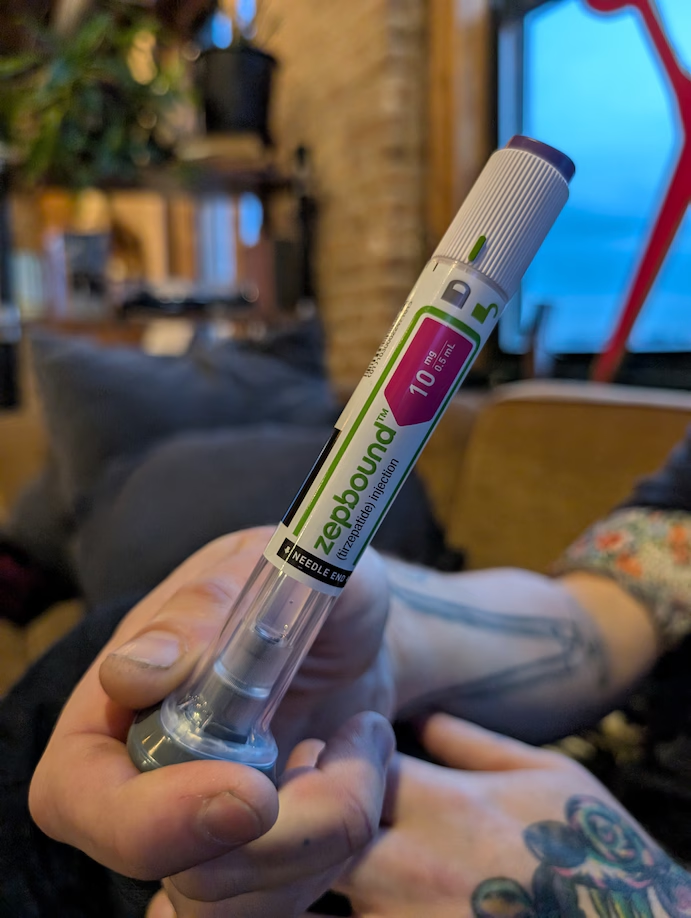FDA approves weight-loss drug Zepbound to treat sleep apnea

In a groundbreaking move for both obesity management and sleep health, the U.S. Food and Drug Administration (FDA) has approved Zepbound, a weight-loss medication, for use in the treatment of sleep apnea. The approval of Zepbound marks a significant step in the ongoing efforts to address the complex intersection between obesity and sleep-related disorders. Sleep apnea, a condition characterized by repeated interruptions in breathing during sleep, is often linked to obesity, and this new drug offers hope to many patients suffering from both conditions.
What Is Zepbound?
Zepbound, a medication developed for weight management, belongs to a class of drugs designed to help individuals lose weight by reducing hunger and increasing feelings of fullness. The drug works by targeting specific hormones that control appetite and metabolism, helping users to eat less and manage their weight more effectively. It is typically prescribed as part of a comprehensive weight-loss plan that includes diet, exercise, and behavioral changes.
The FDA’s approval of Zepbound for the treatment of sleep apnea represents a novel approach to managing the disorder. Traditionally, sleep apnea has been treated through lifestyle changes, the use of continuous positive airway pressure (CPAP) machines, and in some cases, surgery. However, these treatments do not directly address the root cause of the condition in many patients: obesity. By targeting weight loss, Zepbound offers a potential new avenue for treating sleep apnea in overweight and obese individuals.
Sleep Apnea and Obesity:
Sleep apnea is a condition that affects millions of people worldwide, with the most common type being obstructive sleep apnea (OSA). OSA occurs when the muscles in the throat relax too much during sleep, causing a temporary blockage of the airway. This results in frequent awakenings throughout the night, leading to poor sleep quality and a range of health problems, including cardiovascular disease, diabetes, and high blood pressure.
One of the major risk factors for sleep apnea is obesity. Excess weight, particularly around the neck and throat, can increase the likelihood of airway obstruction during sleep. Studies have shown that losing weight can significantly reduce the severity of sleep apnea symptoms, and in some cases, may even eliminate the need for other interventions such as CPAP therapy.
Zepbound’s Impact on Sleep Apnea:
The approval of Zepbound offers a promising new treatment option for individuals struggling with both obesity and sleep apnea. Clinical trials have shown that weight loss achieved through the use of Zepbound can lead to significant improvements in sleep apnea symptoms. By reducing the amount of excess weight around the neck and throat, Zepbound may help to alleviate the airway blockages that contribute to sleep apnea.
In one recent study, patients who used Zepbound lost an average of 15-20% of their body weight, and many reported improvements in sleep quality and a reduction in the number of apneas (breathing pauses) during sleep. These results have sparked hope that Zepbound could become a key tool in the treatment of sleep apnea, particularly for those who have struggled to lose weight through traditional methods.
It’s important to note, however, that Zepbound is not a cure for sleep apnea. While the drug may help reduce the severity of the condition, it should be used as part of a broader treatment plan that includes lifestyle changes, monitoring of sleep patterns, and potentially other therapies. Patients using Zepbound should also continue to follow their healthcare provider’s recommendations for managing sleep apnea.
The FDA’s Decision:
The FDA’s approval of Zepbound is based on the results of extensive clinical trials that demonstrated the drug’s safety and efficacy in helping patients achieve weight loss and improve sleep apnea symptoms. The agency reviewed data from several studies that involved patients with both obesity and moderate to severe sleep apnea, assessing the drug’s impact on weight loss, sleep quality, and the frequency of apneas.
In approving Zepbound for this new indication, the FDA has acknowledged the importance of addressing both the underlying obesity and the symptoms of sleep apnea in a single treatment. For many patients, managing both conditions simultaneously could improve their overall health and quality of life.
The FDA’s approval of Zepbound for the treatment of sleep apnea marks a promising development in the management of this common and potentially life-threatening condition. By targeting weight loss as a means of reducing the severity of sleep apnea, Zepbound offers a new treatment option for individuals who may have struggled to manage both conditions effectively.
As the drug becomes more widely available, it could lead to better outcomes for patients with obesity-related sleep apnea, reducing the burden of this disorder on individuals and the healthcare system. However, patients should remember that Zepbound is not a stand-alone solution and should be used in conjunction with other treatment options to achieve the best possible results. With ongoing research and clinical data, Zepbound may prove to be a key tool in the fight against sleep apnea and obesity.






